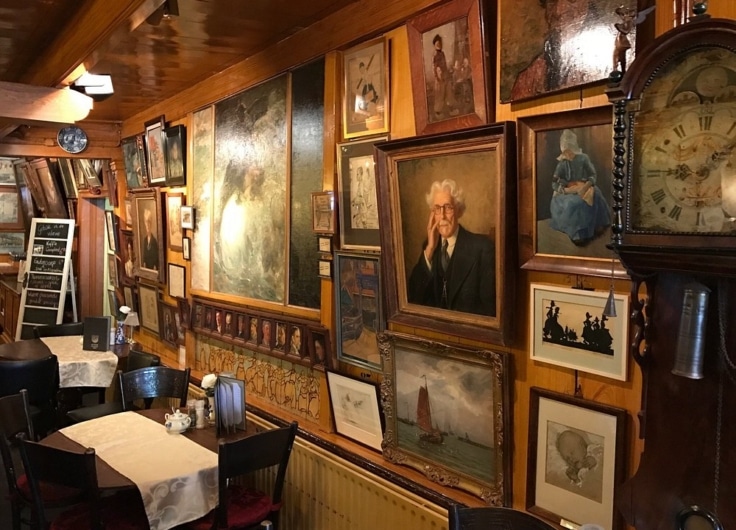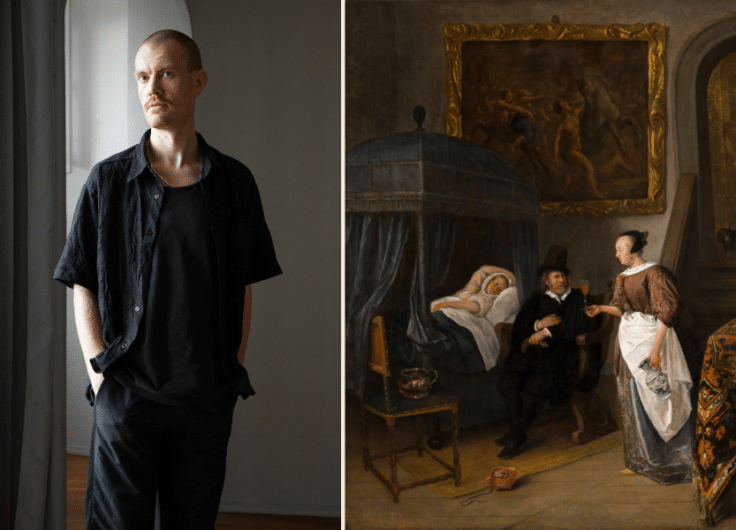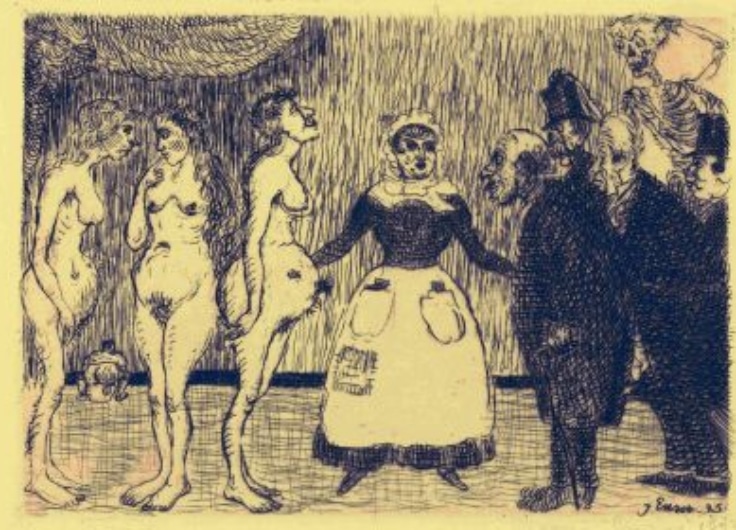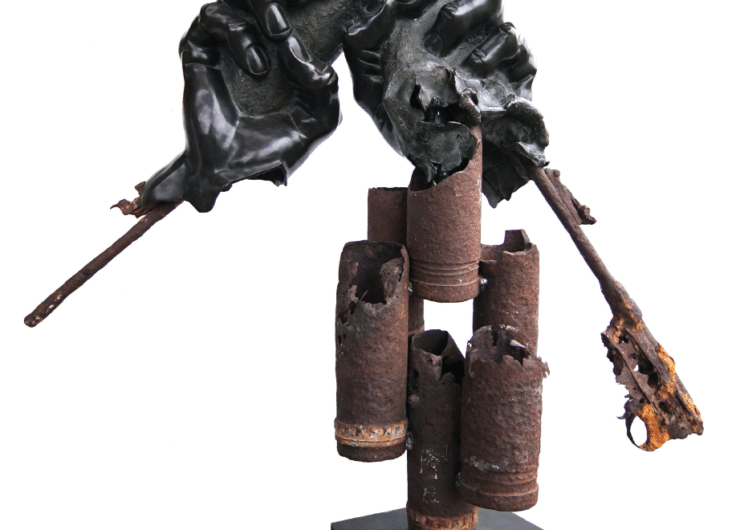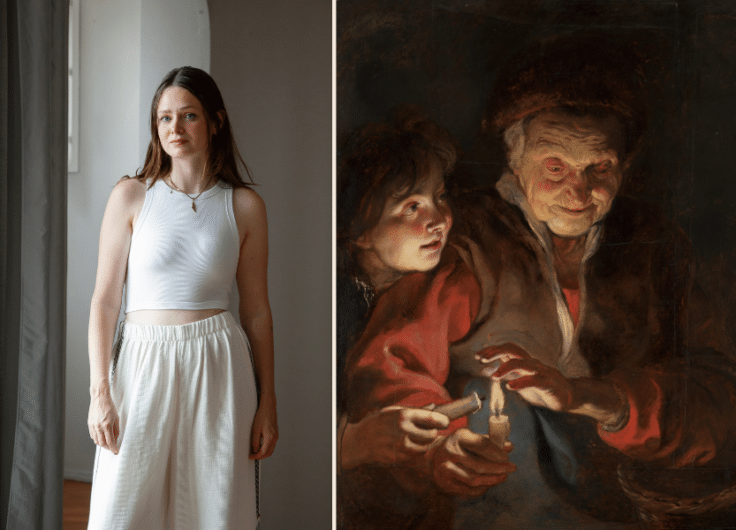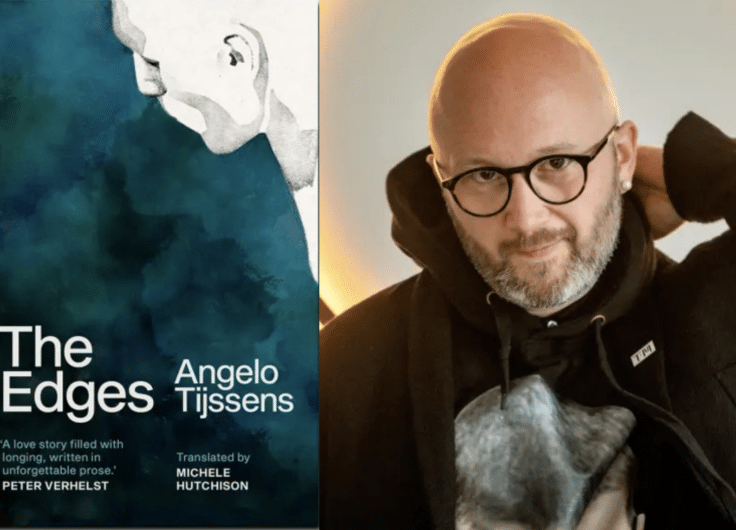‘Raaf’ by Roos Vlogman: Sometimes the Body Wants to Go Its Own Way
With Raaf (Raven), Roos Vlogman has written a captivating debut about a son who may want to break away from his mother, but gradually understands that this is impossible.
Roos Vlogman (b. Arnhem, 1992) has been steadily writing away for several years, mainly short stories. Her work has been published in the newspapers Trouw
and De Morgen and the literary magazine Tirade. After reaching the final round of the competition Write Now! in 2012 and 2013, she won the 2016 edition.
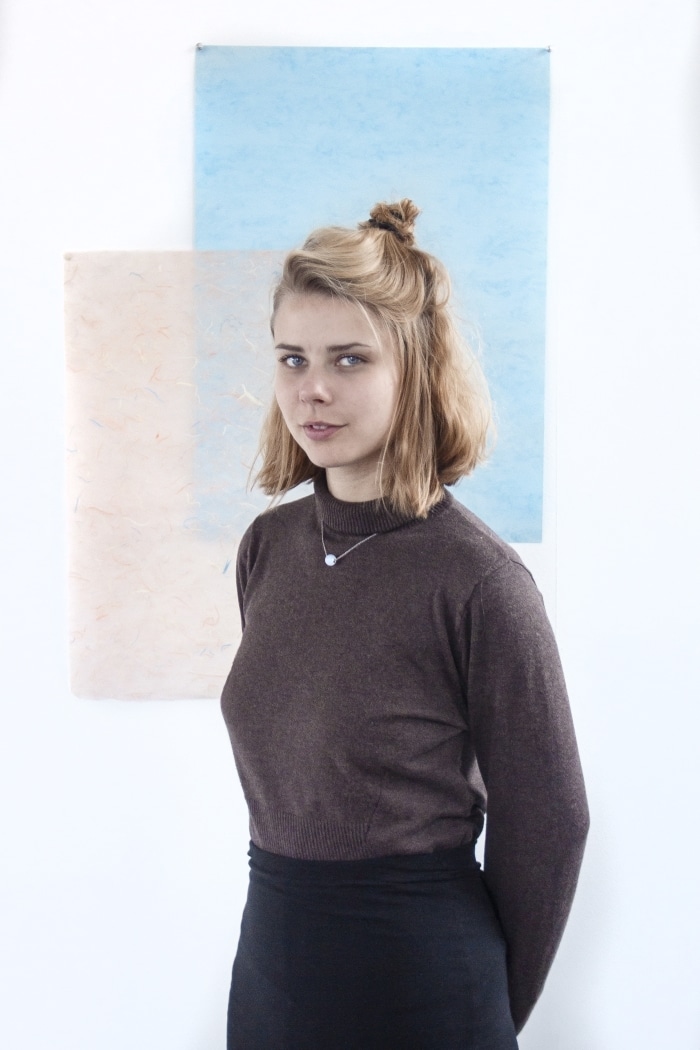 Roos Vlogman
Roos Vlogman© Arnhemse Koerier
The young talent spawned by Write Now! is quickly snapped up by publishers in the Low Countries. Well-known names such as Lize Spit, Niña Weijers, Maartje Wortel, Joost de Vries and Marjolein van Heemstra owe their breakthrough to winning that writing competition. After her win, Vlogman was selected for the Slow Writing Lab, the Dutch Foundation for Literature’s talent development programme, and her debut is published by De Harmonie.
In her debut novel Raaf (Raven), Vlogman tells the story of a young man from a slightly dysfunctional family. There is no father around, and there is something slightly odd about the mother, which remains unsaid. We meet Raven when he goes to buy a puppy. The idea to get a dog was whispered to him in a dream. But when he visits the litter, the puppy he wants has already been set aside. During a spiritual séance with the seller, to find out whether Raven might have a stronger claim to the puppy, he is slipped a note that will contain the answer. When he steps outside a little later and unfolds it, he sees his mother’s phone number.
That first section of the book, set three years later than the rest, contains everything that makes Raven such a special debut: it is dreamy, there are surprising, bizarre twists, hints of what has been or is yet to come, there are sharp observations and original characterisations. For example, Raven observes that all the doors in the house are sliding doors, there is not a single latch. And when the hostess disappears twice in a row to clean or arrange something in another part of the house, Raven thinks: “Perhaps she feels the house is falling apart if not everything is in its right place.”
Vlogman puts little snares in her story that keep you hooked as a reader
Everything about this short novel tells you that Vlogman has become an experienced writer of short stories. Her plot is sparse, she gives away few details, she shows but doesn’t tell. And she puts little snares in her story. Things that keep you hooked as a reader. You may suspect a detail to be significant and to have predictive value, but only sometimes is this the case. And this makes for a gripping read.
We gradually learn more about Raven and his relationship with his mother. Something is wrong with her: if there are things she can’t quite understand, she hides. Either literally, somewhere in the house or in a wood, or figuratively, taking shelter in a strange, uneven relationship, for example. A relationship in which she can take care of someone, because that energises her. “As though she can press her mouth against someone and suck the pain out of him like warm air, after which she is revived and floats ethereally through the house.” But the end is always the same: she wants to be found. And not just by anyone, but by Raven.
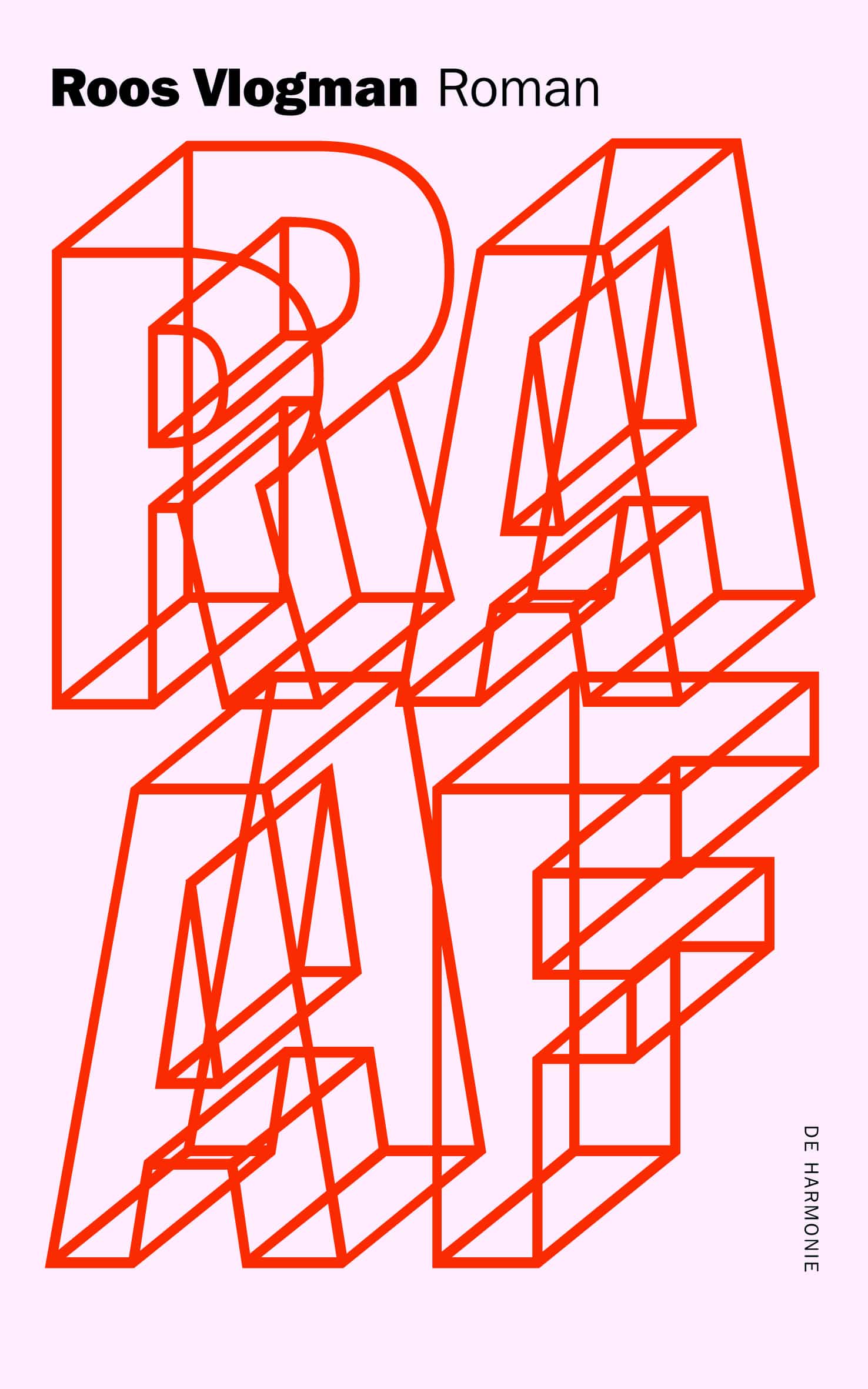
Raven, for his part, thinks he has a secret weapon: that when people really want something, he can read their minds. So, he often thinks he knows what his mother wants. Accordingly, their worlds regularly collide. Yet they are inextricably linked. Even when they have no contact for a while.
“Does the body rule the mind, or does the mind rule the body”, Morrissey wondered on The Smiths’ debut album. Raven also grapples with this dilemma. Sometimes a body may want something, even to leave its head behind, like a neglected, useless satellite. But the head has a sense of responsibility and guilt and all those other big words and wants to solve a problem by staying. Just when the body wants to move on. It’s an ongoing conflict, just like the struggle of a son to break away from his mother. Whether that is successful is not the most important thing in Raaf (Raven). It is the loving battle that entices us, not its outcome.
An excerpt from 'Raaf', as translated by Paul Vincent
pp. 9-11
In a dream, a dog is in all cases a dog. What I mean is: I can dream of a woman who from every angle is not my mother, wake up and know: that was my mother. I can dream of a dustman, a removal man, a big man with wrinkles in his forehead and arms like the foundations of a house, wake up and know: that man is my mother too. But a dog is always a dog in a dream. I shop in the same supermarket as my mother. I know that, just as I know that a school building in a dream is the house I grew up in. In reality, it feels strange driving past her house, because it was my house too, I know where everything is and I also know I am not going to pick things up there anymore. We’ve never yet bumped into each other in the supermarket.
On the notice board hangs a note: ‘For sale: nest of rubbish bins’. Next to it hangs a photo that is so blurred that I can’t make out any dogs in it. I don’t know exactly why I enter the number in my phone.
I stop in front of the pet food shelf: dog biscuits in the shape of skulls and bones, purple cat litter, now even more absorbent. I buy three tins of tripe and a packet of dry chunks. I become excited by the idea that I have made a choice, that I am going to give myself a present.
The seller’s house is in the newest part of town. Here people are allowed to design and have their own homes built. You buy a plot of land and a year later you’re living in a sizeable treehouse, a sea container on piles, or a UFO. I walk down the street I was directed to, nowhere are house numbers visible. All the houses look extravagant on the outside and empty inside: there is scarcely any furniture, everything is white or cement-grey. In each house, there is a large designer chair in the centre of the room and on the wall a television so flat that it looks just like a window. In a bungalow made of very thick recycled cardboard, I see something move. A mother dog is lying in a large banana box, suckling five puppies. Next to the bell is a small aluminium identity tag, like in the army, on which the house number is printed.
When I ring, the front door opens like a sliding French window. A young woman appears, dressed in a black rollneck sweater and black trousers which flare widely just above her ankles. She is wearing gold-coloured socks and is going over her clothes with an adhesive roller.
‘I’m Martha,’ she says. She does not shake hands. ‘Come in quickly.’
She lets me into the living room. All the doors slide open to the side, like a disappearing wall, none of the doors has a door handle. In the kitchen, there is a free-standing cooker unit. On the grey moulded floor is a white woolly rug. I can’t see any sofa or chairs, or anything else to sit on. Everything in this room has sharp angles and straight lines. Nothing is rounded.
Roos Vlogman, Raaf, Uitgeverij De Harmonie, Amsterdam, 152 pp.


